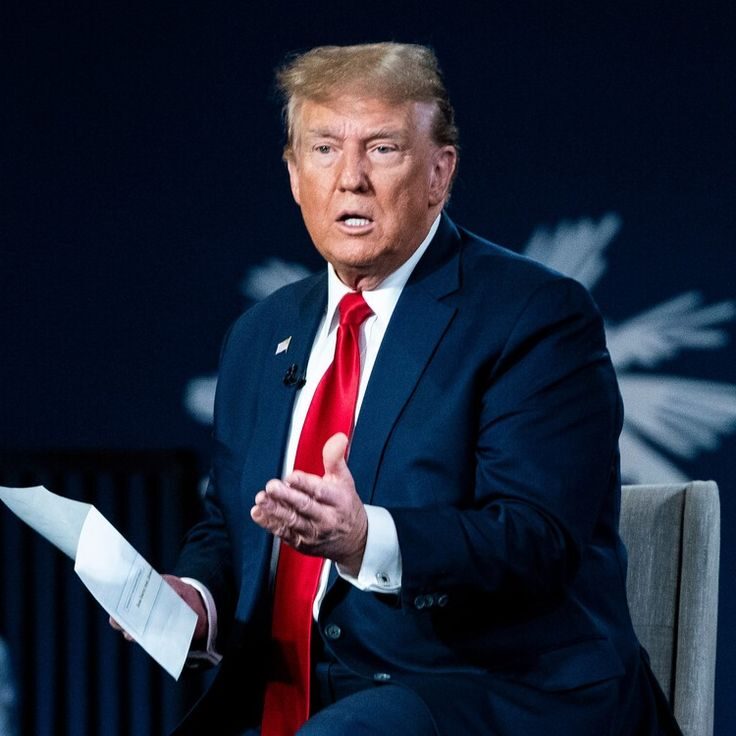
In the tumultuous arena of American politics, few figures evoke as much fervor as Donald Trump. His recent conviction has ignited a whirlwind of controversy and reaction, both from his supporters and opponents. As he grapples with legal repercussions, Trump’s response has been characterized by a mixture of indignation, defiance, and a barrage of false claims.
In the days following the conviction, Trump took to social media platforms to vent his frustrations. His posts were laden with assertions that his legal troubles were politically motivated—a narrative he has promoted since the onset of various investigations against him. He described the judicial process as a “witch hunt,” echoing a familiar refrain that has resonated with his base. This strategy not only aims to galvanize support but also to deflect attention from the gravity of the charges he faces.
Despite the overwhelming evidence presented during the trial, Trump maintained his stance that he had been wronged. He claimed that the judiciary had been compromised, suggesting that the system was rigged against him. This rhetoric serves a dual purpose: it reinforces his victimhood narrative while encouraging his followers to rally around him. For many of his supporters, Trump’s words resonate deeply, feeding into a broader narrative of distrust toward established institutions.
The fallout from his conviction extends beyond Trump himself; it has repercussions for the Republican Party as a whole. Some party leaders are concerned that his continued focus on false claims could alienate moderate voters. As Trump doubles down on his rhetoric, the GOP faces a dilemma: how to balance support for their former president with the need to appeal to a wider electorate. The party’s identity is increasingly entwined with Trump’s brand of populism, and navigating this terrain will be crucial in upcoming elections.
In addition to targeting the judicial system, Trump has also sought to cast doubt on the credibility of his opponents. He has made sweeping accusations against political adversaries, framing them as part of a broader conspiracy to undermine his presidency. This approach not only distracts from his own legal issues but also galvanizes his supporters, who see themselves as part of a righteous struggle against an entrenched elite.
The media has also come under fire as Trump and his allies accuse journalists of perpetuating false narratives. He has labeled critical reporting as “fake news,” a tactic that has become a hallmark of his communication style. By delegitimizing the media, Trump aims to create an alternative reality where his claims are the truth, thereby solidifying the loyalty of his base.
As Trump continues to navigate the aftermath of his conviction, the implications for the 2024 presidential race are significant. His ability to maintain a strong following hinges on his capacity to frame his legal challenges as part of a larger struggle. If he can successfully portray himself as a martyr for the cause, he may emerge from this crisis with even more fervent support.
However, this strategy is not without its risks. While his base remains staunchly loyal, there is a growing segment of the electorate that is weary of the drama and controversy that has surrounded Trump’s tenure. Many voters are seeking stability and a return to normalcy, and they may find it difficult to support a candidate who is embroiled in ongoing legal battles.
Furthermore, the convictions and legal challenges may inspire a renewed push from opponents to rally against him. The Democratic Party is already mobilizing efforts to capitalize on the fallout from Trump’s legal issues, framing the situation as indicative of larger concerns about integrity and accountability in leadership.
In the grand scheme of American politics, Trump’s legal troubles represent more than just personal accountability; they symbolize a broader struggle over the future direction of the Republican Party and the nation. His actions and rhetoric will undoubtedly shape the political landscape for years to come, influencing not only party dynamics but also public perceptions of governance and justice.
As Trump continues to rally his supporters and lash out at perceived enemies, the questions surrounding accountability and truth remain at the forefront of political discourse. The nation watches closely as this saga unfolds, pondering the implications for democracy and the rule of law. Whether Trump can successfully navigate this storm or whether it will lead to a significant shift in the political landscape remains to be seen.
In the end, Trump’s conviction has not only tested his resilience but has also exposed the fragility of political norms in contemporary America. The path forward is uncertain, but one thing is clear: the echoes of this moment will reverberate through the halls of power and beyond, shaping the future of American politics for generations to come